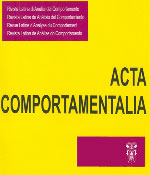Linguistic Modality of Didactic Discourse and Contextual Competence Learning
Main Article Content
Abstract
This study was aimed to determine the possible differential effect on contextual competence learning that could be exerted by didactic discourse when its linguistic modality is only textual, when it is only auditory, and when its modality is at the same time textual and auditory. Twenty three college students were distributed randomly in three groups receiving the same information, but under different modalities. Group 1 received it in the textual modality, Group 2 in the auditory, whereas Group 3 received it in both, textual and auditory. Results found in identification tasks did not show significant differences among the three groups, but there were greater similarities between the performances of groups 2 and 3. This last result suggests that when information is conveyed simultaneously in the textual and auditory modalities, subjects tend more to listen than to read, which may account for its greater similarity with the group of the only auditory modality. The authors conclude on the need to consider the functional nature of the different linguistic modes in their participation on learning.
Article Details
How to Cite
Ibañez Bernal, C., Reyes Seáñez, M. A., & Mendoza Meraz, G. (2010). Linguistic Modality of Didactic Discourse and Contextual Competence Learning. Acta Comportamentalia, 17(3). Retrieved from https://revistas.unam.mx/index.php/acom/article/view/18157
Citas en Dimensions Service

<a rel="license" href="http://creativecommons.org/licenses/by-nc-sa/4.0/"><img alt="Licencia de Creative Commons" style="border-width:0" src="https://i.creativecommons.org/l/by-nc-sa/4.0/88x31.png" /></a><br />Este obra está bajo una <a rel="license" href="http://creativecommons.org/licenses/by-nc-sa/4.0/">licencia de Creative Commons Reconocimiento-NoComercial-CompartirIgual 4.0 Internacional</a>.
